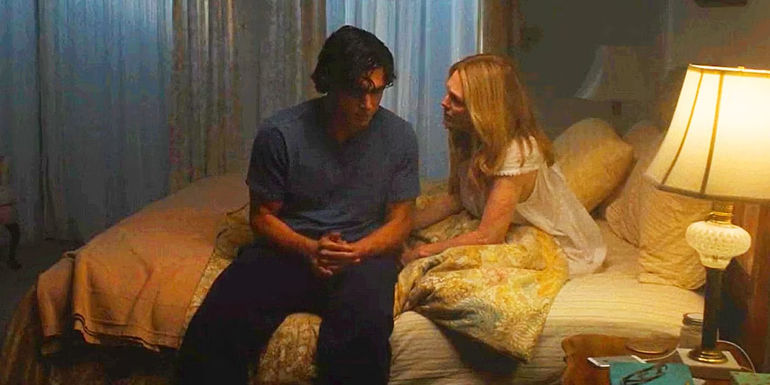
May December: A Real-Life Inspiration's Response to the Movie

The new Netflix film 'May December' has sparked controversy as its real-life inspiration, Vili Fualaau, responds to the portrayal of his story. This article provides an in-depth analysis of the movie and its connection to the Mary Kay Letourneau scandal, as well as Fualaau's candid reaction to the film.
The Controversy Surrounding May December
The new Netflix film 'May December' has stirred up a whirlwind of controversy as its real-life inspiration, Vili Fualaau, speaks out against the portrayal of his story. The movie centers around Joe, a man who, as a boy, was involved in a tabloid romance with an adult woman, Gracie. The storyline mirrors the infamous Mary Kay Letourneau scandal, with striking similarities that have raised eyebrows and sparked a heated debate within the industry. Fualaau, the real-life inspiration for Joe, has expressed profound disheartenment at what he considers to be an exploitation of his story and trauma, particularly due to the lack of consultation from the director, screenwriter, or lead actor.
Charles Melton and Julianne Moore sitting on a bed in May December
In an exclusive interview with The Hollywood Reporter, Fualaau bluntly conveyed his feelings of offense and disappointment towards the entire project. He emphasized the lack of respect given to him, as someone who lived through a real-life story and is still living it. Fualaau expressed his admiration for movies that capture the essence and complications of real-life events, highlighting the missed opportunity for collaboration to create a masterpiece that truly reflects his complex experience. His remarks shed light on the intricate layers of his life that extend far beyond the simplicity portrayed in the film.
May December's Real-Life Inspiration Explained
The controversy surrounding 'May December' is deeply rooted in its connection to the Mary Kay Letourneau scandal, a notorious case that captured nationwide attention in the 1990s. Screenwriter Samy Burch has been open about the film's loose inspiration from this scandal, which involved a schoolteacher's illicit relationship with her 6th-grade student, Vili Fualaau. Letourneau's subsequent guilty plea to child rape and prison sentence, followed by her marriage to Fualaau, continued to fuel media scrutiny and fascination. The striking parallels between the movie and the Letourneau scandal are evident, with Joe's character reflecting Fualaau's experience with his abuser, Gracie, and their subsequent marriage after her prison release.
Furthermore, the incorporation of direct dialogue from Letourneau and Fualaau's interviews adds another layer of authenticity to the portrayal, raising questions about the decision not to consult Fualaau during the creation of the film. The similarities between the real-life events and the movie's narrative have drawn attention to the ethical considerations and responsibilities of filmmakers when depicting sensitive and deeply personal stories. 'May December' is streaming on Netflix, inviting viewers to engage with the controversial themes and the real-life inspiration behind the story.
Reflections on Real-Life Stories in Film
The clash between real-life inspiration and cinematic portrayal brings to the forefront the complexities of depicting sensitive and impactful stories on screen. It prompts a broader conversation about the ethical and creative responsibilities of filmmakers when drawing from real-life events, especially those involving trauma and personal experiences. Fualaau's candid response to 'May December' underscores the importance of genuine collaboration and respect for the individuals whose lives are being portrayed, emphasizing the potential for impactful storytelling through meaningful partnerships between creators and real-life subjects.
As audiences engage with 'May December' and its real-life inspiration, it serves as a reminder of the power of storytelling to provoke introspection and critical discourse. The film's connection to the Letourneau scandal and Fualaau's response invites viewers to consider the ethical implications of storytelling and the impact of cinematic narratives on the lives of those whose experiences are being depicted. It raises pertinent questions about the boundaries of artistic interpretation and the ethical obligations of filmmakers towards the individuals whose stories they seek to portray.














